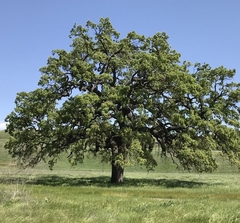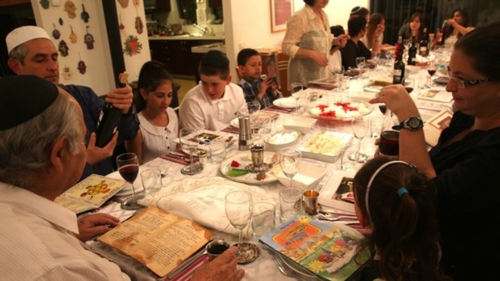A Moment Away From Being Free
04/07/2022 09:28:23 AM
 So, I’m walking in the Sonoma Regional Park. It’s the early evening and I am in deep thought over what to write for Passover, which is just a week away. I bet I look preoccupied, like when someone is talking to you while checking their smartphone. If someone could plug into my brain, my internal dialogue would sound something like this: “From degradation to exaltation….” [Didn’t you write that last year?] “Passover is the jewel in the crown of the Jewish Holidays….” [Boring!] “Think, George, think! It’s in there somewhere….”
So, I’m walking in the Sonoma Regional Park. It’s the early evening and I am in deep thought over what to write for Passover, which is just a week away. I bet I look preoccupied, like when someone is talking to you while checking their smartphone. If someone could plug into my brain, my internal dialogue would sound something like this: “From degradation to exaltation….” [Didn’t you write that last year?] “Passover is the jewel in the crown of the Jewish Holidays….” [Boring!] “Think, George, think! It’s in there somewhere….”
I grind away, mentally and physically, for at least a quarter mile until I have a “mindfulness moment.” I stop and actually notice where I am: the carpet of lupine waving in the breeze, the robin’s sweet song to my right, and the stunning beauty of the large oak tree in front of me, bathed in the golden light of the setting sun. That’s when it comes to me, that the oldest layer of Passover is a paean to the natural world, a celebration of spring, the miracle of regeneration, rebirth and renewal. This earth-based narrative got buried over time, replaced by the Exodus story, but if you look hard you can still find it, for example, in the parsley and hard boiled egg on the Seder plate, and in the tradition of reading the Song of Songs (erotic love poetry set in the land of Israel in the spring) during the week of Passover.
“I am my beloved’s, and his desire is for me. Come, my beloved, Let us go into the open; Let us lodge among the henna shrubs. Let us go early to the vineyards; Let us see if the vine has flowered, If its blossoms have opened, If the pomegranates are in bloom. There I will give my love to you. The mandrakes yield their fragrance, At our doors are all choice fruits; Both freshly picked and long-stored Have I kept, my beloved, for you.”
Then a memory flooded in from Seder in Jerusalem some 30 years ago. I was at Rabbi David Hartman’s table, may his memory be for a  blessing, and he taught that Pesakh at its core, and especially the Seder, is about gratitude. Wow! We have so much to be grateful for, I thought, as I started to walk again: unsurpassed natural beauty all around us, an exceptional level of personal safety and freedom, great food, community, culture, and more.
blessing, and he taught that Pesakh at its core, and especially the Seder, is about gratitude. Wow! We have so much to be grateful for, I thought, as I started to walk again: unsurpassed natural beauty all around us, an exceptional level of personal safety and freedom, great food, community, culture, and more.
Yes, Covid is still a big concern, as is domestic and international politics, not to mention the climate crisis, the drought, and the looming fire season. There is a plethora of things to keep us up at night and the Seder does call on us to engage in tikkun o’lam, to make life as safe and rewarding for all human beings as it is for us. Yet, none of the dark cloud of worry we experience, or our sense of responsibility to heal the world, reduces the beauty of the day or the bounty it represents. Both are simultaneously true.
 I’d like you to believe that I spent the rest of my walk reveling in the natural beauty all around me, feeling thankful and warmed by the memory of my teacher. But in fact, I began to write – in my head, of course – another blog about Passover as a celebration of spring and gratitude, which bogged me down just as it had before. But this time I was quicker to notice. I stopped, took a breath, and returned to the present, which was even more beautiful than a few moments before, the sun now a burnt orange frame for the ridge line as dusk descended on the meadow I was standing in.
I’d like you to believe that I spent the rest of my walk reveling in the natural beauty all around me, feeling thankful and warmed by the memory of my teacher. But in fact, I began to write – in my head, of course – another blog about Passover as a celebration of spring and gratitude, which bogged me down just as it had before. But this time I was quicker to notice. I stopped, took a breath, and returned to the present, which was even more beautiful than a few moments before, the sun now a burnt orange frame for the ridge line as dusk descended on the meadow I was standing in.
Rabbi Nachman of Breslov taught that, “The Exodus from Egypt occurs in every human being, in every era, in every year, and even every day.”
I would add, “even in every moment,” because watching my mind as I walked taught me that we are often just one thought away from being free.
Hag Sameach!
Rabbi George

